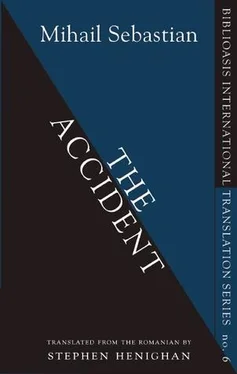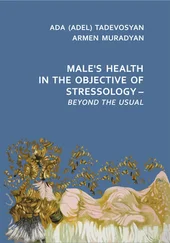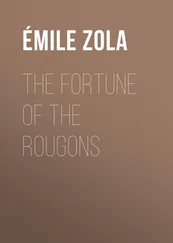Braşov had the appearance of a town taken over by a training camp. Entire regiments of skiers seemed to have occupied the citadel. Blue peaked caps were everywhere.
“Did so many people come here to listen to the Christmas Oratory ?” Nora said in surprise, laughing.
Above all, people had come for the skiing competitions at Predeal, which started in two days’ time. The teams of competitors, who until now had been training in the mountains throughout the region were beginning to gather down in the town
On the boulevard, across the street from the post office, the municipal train, with its stubby railway engine and little yellow carriages looked like a toy stuck in the snow. The engine’s whistling, calling late passengers, could be heard from far away. Many people were going to look for shelter for the night in Dârste, Cernatu and Satu-Lung.
“If we don’t find anything anywhere else,” Nora said, “and if there’s still time before the concert, it might not be a bad idea for us to go to Satu-Lung too, on the last run.”
“No, not Satu-Lung,” Paul refused.
“Why not?”
“It’s too far… It’s too late.” For a moment he considered telling her frankly: There are too many memories there that I don’t want to get close to . Then he realized that this wasn’t even true. It seemed to him that he could stare those memories, which felt healed now, straight in the eyes, without danger or apprehension. No, that train was not going in the direction of his past…
“The line’s blocked on the other side of Dârste,” someone shouted from the window of a carriage.
Yes, it’s blocked , Paul repeated in his mind. It seemed to him as though there really were broken connections in his memory, blocked lines, roads that had closed forever. With an effort, the train set itself in motion with a noise of frozen old fetters. The engine fought to break out of the ice, to push through the snow.
The passengers were singing out the windows, waving their ski caps, shouting, greeting those who were staying behind with exaggerated gestures. At the back of the train, a few skiers were straining with mock effort to push it out of the snow.
“Skiing turns everyone into a child,” Paul said.
It wasn’t only skiing. It was that whole Christmas Eve, with its holiday mood, its deep snows, its vacation bustle.
Hagen had told the truth. The address he had given them was far away, while the house really did look very old. The wooden door in a grey wall, locked with large iron bars like the door of a fortress, was deaf to all of their knocking. One might have thought that no one had come here since time immemorial.
Frau Adelle Bund was not home, or did not wish to reply.
All along the street astonished faces appeared at the windows, not knowing what was going on. From across the street the neighbours’ little girl asked them who they were looking for.
“Doesn’t anybody live here?” Paul asked.
“Of course, but…”
The little girl didn’t finish her reply and sped home, probably in order to spread the news about the incredible goings-on that were happening at number 26.
Yet the door had opened at last, although only half-way. On the threshold an old woman dressed in black prevented them from entering with a bitter glare that right from the start said: No! Paul offered her Hagen’s envelope, and she opened it, continuing to oblige them to stay outside, facing the door. From time to time she raised a suspicious glare in their direction, as though she were comparing them with what was written in the letter.
“It would be better if you found somewhere else to sleep,” she said in conclusion, never the less deciding to receive them indoors.
They went forward, entering first an interior courtyard lined with several shuttered windows, then a long, dark corridor. The house felt uninhabited. Neither a noise nor a whisper could be heard anywhere. The woman stopped in front of a door and tried a few keys in the darkness until she succeeded in opening it. It was a small, frozen room with rustic furniture covered in dust. When was the last time they opened the windows in here , Nora wondered.
Frau Adelle Bund seemed to understand the visitor’s thoughts. “I have to air it out and make a fire. I didn’t know you were coming. Nobody comes here.”
The shutters, like the front door, were closed with iron bars.
“We’ll leave our backpacks and go,” Nora said. “If you give us the key to the front door, you won’t have to wait up for us. We’ll be coming back late.”
She wanted to get out of there as quickly as possible, to find herself outdoors again, on the other side of these chilly walls.
The Black Church was full of light.
“The Grodeck clan is gathering,” Nora said.
She saw them coming in from all corners of the town in family groups, sombre, silent, in heavy fur overcoats, moving with measured strides. They entered without haste and greeted each other without joy, making ceremonious salutations. On arrival they scattered to the left and the right, moving towards seats that must have been theirs, always the same, for years and years.
“Do you think they’ll let us in?”
The man who tore their tickets at the entrance looked a little surprised by their clothes. But there were a few other skiers who had come from Poiana and Timiş. The blue jackets and cloth blouses were soon lost to sight among the frock coats and fur.
The violins were tuning up in the shadow of the great organ, which dominated everything by its silence. The church was filled with the bated-breath hubbub of the orchestra, testing their instruments in the final moments before the concert began. A flute or a horn lifted its voice for a second, then disappeared, covered by that generalized, “Yes,” transmitted like an appeal by the violins and cellos.
Silence fell at last. They felt the sound of the invisible director, who had raised his baton.
First the flute and then the oboe entered timidly into the game, with something questioning in their sound; but after the first notes the violins fell silent and, almost in the same instant, they heard the trumpets — unexpected, triumphant trumpets. The musical phrasing was powerful, self-assured, tightly integrated into a piece that from the beginning announced victory and light. The flute and the oboe ran a subterranean course beneath this line that was barely audible in the moments of breathing space between the dominant motifs. When the violins and brasses fell silent, their silence was protective: only with their indulgence were the fragile flute, the pensive oboe, able to rise again.
The game didn’t last long. The strings, woodwinds and trumpets were covered as the choir burst out: “ Jauchzet, frolocket auf, preiset die Tage! ” 23
The song was simple, but the holiday began with those words. It was a great cry of joy which, in a second, flung the orchestra into the background. The whole choir was but the voice of a single herald. It seemed to lift the vaulted ceiling, to open the windows, to create light.
Nora sought out Paul’s eyes. She wished to know that she wasn’t alone before this annunciation. He placed his hand — his heavy hand — on her shoulder, but did not turn his head. The gesture spoke to her without words: yes, Nora, I’m here, I’ve heard, I’ve understood …
The violins and the brasses, at first overwhelmed, found each other again. The trumpets spread the news announced by the choir. The flutes and oboes hurried on, with their finer sound, between that of the chords and that of the brasses. The solitary organ was neither surprised nor rushed. Its low tones seemed to support the entire oratory like a living cathedral. The violins and the voices grew out of it, as though out of rich earth. The organ bore them on without a smile, without harshness, with a dash of sadness, because it alone knew their destination.
Читать дальше












